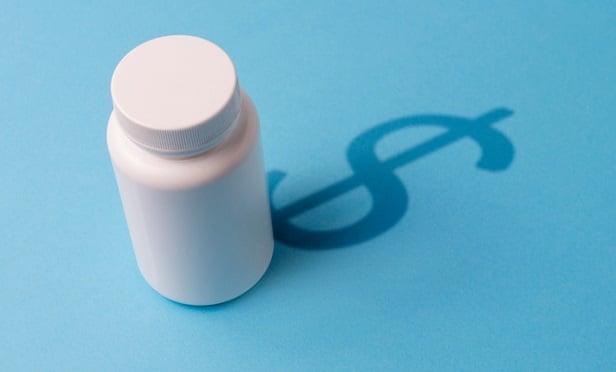 Pelosi's plan would have Medicare pay no more than 1.2 times the average prices paid in the U.K., Germany, Australia, Canada, Japan and France for many drugs. (Photo: Shutterstock)
Pelosi's plan would have Medicare pay no more than 1.2 times the average prices paid in the U.K., Germany, Australia, Canada, Japan and France for many drugs. (Photo: Shutterstock)
(Bloomberg Opinion) –Every time Congress tries to take on drug prices, it runs into the pharmaceutical lobby's timeworn objection: Lowering prices even a penny would end all drug innovation, allowing cures to slip through our fingers and dimming the flickering hopes of desperate patients.
This doomsday argument has worked for decades, but House Speaker Nancy Pelosi's drug-price negotiation legislation is putting it to the test. A Congressional Budget Office analysis finds that the lower prices envisioned by her bill would barely slow new drug discovery at all.
Related: States pass record number of laws to curb drug prices
Pelosi's plan is to finally use the market power of Medicare, which is effectively the largest purchaser of drugs in the world, to push prices down. As things stand, multiple laws prevent Medicare from negotiating prices with drugmakers. One of them forbids the agency from negotiating the prices of medicines sold in pharmacies, another mandates paying whatever prices companies set for the intravenous drugs that doctors administer in their offices, and a third says the cost of drugs given in the hospital, no matter how high, should be directly incorporated into the hospital's reimbursement.
Commercial insurers largely follow the same rules, which is why average drug prices in the world's largest market are also the world's highest. U.S. prices are four times those of Switzerland, for instance.
Pelosi's plan would have Medicare pay no more than 1.2 times the average prices paid in the U.K., Germany, Australia, Canada, Japan and France for many drugs. For those not sold overseas, Medicare would get automatic discounts similar to those that state Medicaid systems receive today. Negotiation would be used only for those drugs that lack robust generic competition and account for considerable taxpayer costs.
This change could save Medicare more than $300 billion dollars in the first decade, the CBO found. A parallel report card from the independent Office of the Actuary of Medicare estimates that households, state governments and businesses would save an additional $243 billion.
To no one's surprise, the drug industry has declared the bill a "nuclear winter" for pharmaceutical innovation. But this time Congress's accountants looked into that possibility and found it to be a whopping exaggeration. After consulting with experts, including many in the pharmaceutical industry, they found that, under the legislation, drug discovery would carry on at 95-97 percent of its current pace.
So hundreds of billions in savings to taxpayers, businesses and patients would mean a real but very small decline in the rate at which new treatments are discovered. Would such a tradeoff make society sicker in the long run, or healthier? The bookkeepers didn't say, but they dangled certain clues.
A significant share of the projected health-care savings from the legislation — some $42 billion — would come from patients more reliably taking the drugs they need, because they would cost less. As things stand today, insured American patients are up to seven times more likely than patients in other high-income countries to skip doses because they can't afford them.
Consider, too, that Congress could make sure that the hundreds of billions in savings from the bill are reallocated toward health — perhaps by funding vision, dental and hearing coverage in Medicare, as the House Committee on Energy and Commerce has proposed. Some of the money could be dedicated to biomedical research and additional treatment for victims of the opioid epidemic.
We can't be certain exactly which drugs would be slower to develop under Pelosi's plan, but we can guess, based on the way the legislation would anchor prices to those paid in other countries.
Highly effective drugs are expensive even outside the U.S. For instance, the CAR-T cell therapy Kymriah, which is effective against childhood leukemia, is reimbursed at nearly the same price in the U.K. as it is in the U.S. So companies will always have incentives to develop new useful medicines.
They will have reduced incentive to pursue the kinds of less-effective drugs that other countries refuse to buy. The Duchenne muscular dystrophy treatment Exondys 51 that costs nearly $1 million a year in the U.S., for example, isn't even available in Europe, because the data on its effectiveness are unconvincing.
Pelosi's bill may never make it to the Senate, such is the influence of pharma's fear campaign. But it is already a success: It has demonstrated that the U.S. can lower its pharmaceutical bill at little cost to drug discovery.
Read more:
© Touchpoint Markets, All Rights Reserved. Request academic re-use from www.copyright.com. All other uses, submit a request to [email protected]. For more inforrmation visit Asset & Logo Licensing.






